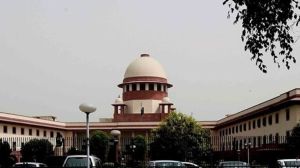WB seeks help from US firm on rural electrification
CALCUTTA, APRIL 20: West Bengal has sought technical help from an American firm, National Rural Energy Co-operative Association Internatio...

CALCUTTA, APRIL 20: West Bengal has sought technical help from an American firm, National Rural Energy Co-operative Association International Ltd (NRECA), to better the current rural electrification scene in the state.
In an MoU jointly signed by the West Bengal State Electricity Board (WBSEB) and West Bengal Rural Energy Development Corporation Limited (WBREDC) with the firm, the state has asked the American concern to provide inputs on rural electrification.
"The firm will begin work in June in a block of Diamond Harbour to study the current state of affairs and suggest ways to improve it based on an Indian model," WBREDC chairman Sujan Chakraborty told newsmen here today.
The firm, which will work without any consultation fee to begin with, is expected to bring out its recommendations based on the study following which the possibility of employing it for rural electrification will be considered, Chakraborty said.
Earlier, NRECA Vice-president Paul J Clarck told an interactive session with industry experts that the firm had electrified 34 per cent of villages in Bangladesh under a separate project.
NRECA had signed another MoU with WBREDC last year to provide assisstance in planning and implementing a strategy to improve the quality and coverage of energy supply in the state, Clarck said.
WBREDC advisor S R Sikdar said due to non-availablity of loans from the Rural Electrification Commission (REC) and severe funds crunch faced by WBSEB, the pace of rural electrification had slumped in 1999.
"To speed up rural electrification in keeping with power sector reforms, the corporation is trying to cover 100 per cent of rural moujas with a target of 85 per cent electrification by the end of ninth plan," he said.
Clark said though the size and nature of rural sector subsidies and constraint of new capital entering the sector were obstacles in the path of total rural electrification, his firm had evolved a formula for direct involvement of beneficiaries in ownership and accountability to meet service standards.
Suggesting standards for sustainable rural electrification programmes, Clark said a clear pro-active public policy with comprehensive set of criteria for technical design and dedicated financing was required to make such projects work.





- 01
- 02
- 03
- 04
- 05


























